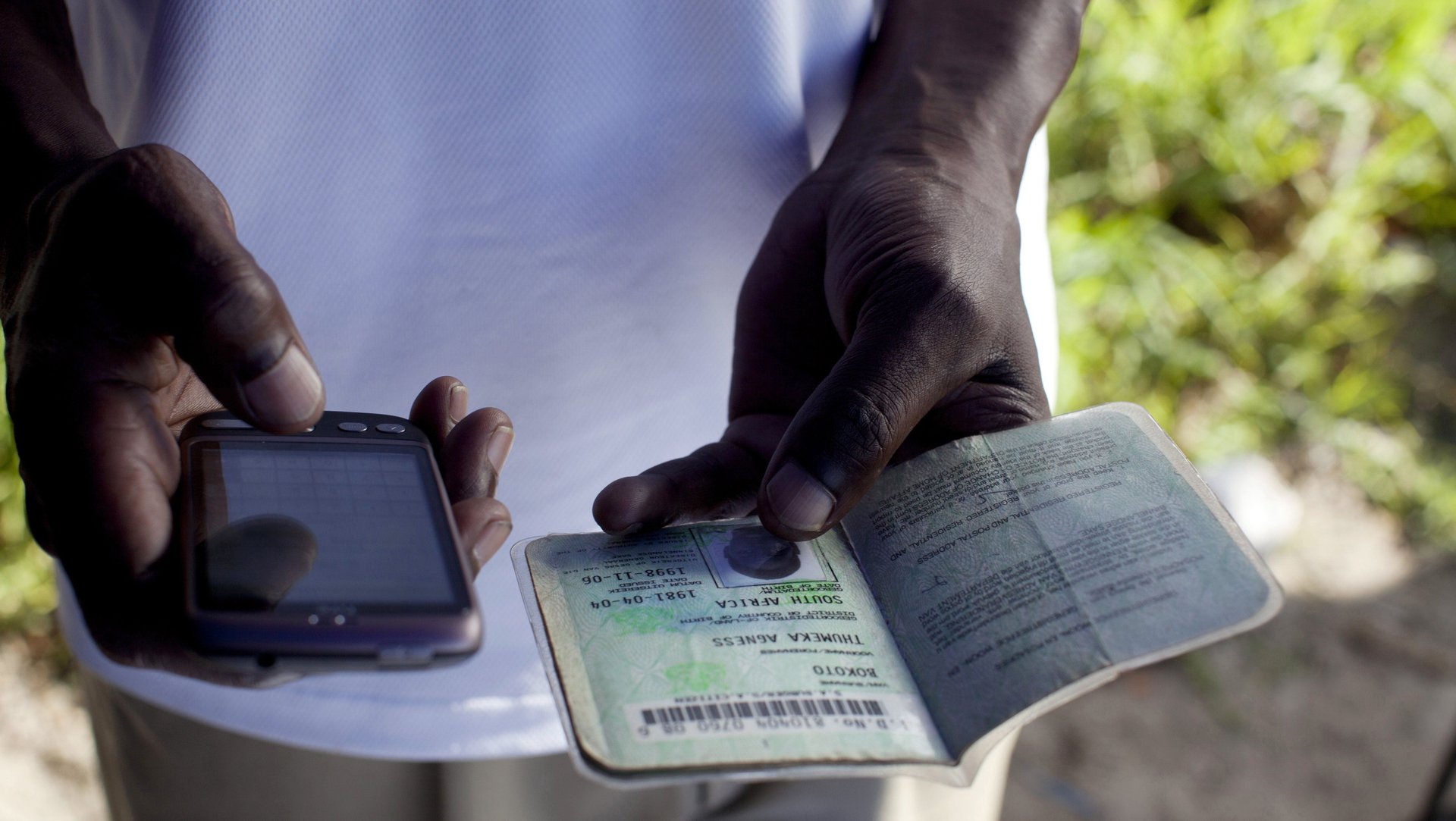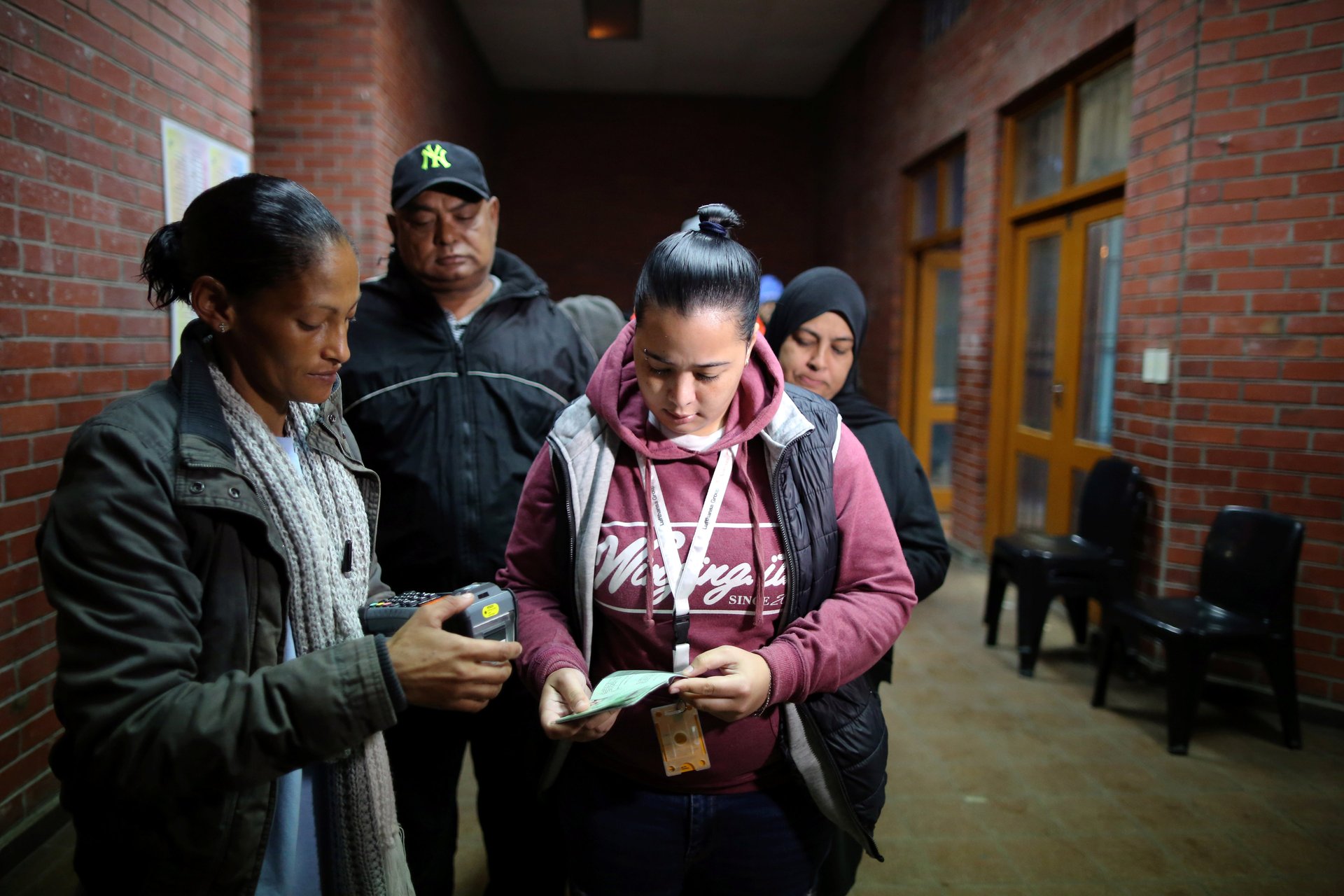South Africa wants to enshrine the right to be non-binary
Apartheid chiseled race and gendered othering into the every day lives of South Africans. National identity numbers, given to every citizen and permanent resident, contained details of the person’s race, perceived gender, and geography using numbered codes. These codes formed a manual for how the state treated people, determining where they could live, whom they could love, and what their life prospects might be.


Apartheid chiseled race and gendered othering into the every day lives of South Africans. National identity numbers, given to every citizen and permanent resident, contained details of the person’s race, perceived gender, and geography using numbered codes. These codes formed a manual for how the state treated people, determining where they could live, whom they could love, and what their life prospects might be.
Now, in a first for an African country, South Africa is revising its national identity system to be more inclusive and recognize different gender identities.
South Africa’s identity numbers helped grease the bureaucracy of apartheid by making racial and gender sorting easier. After the country’s democratic government came to power in 1994, it worked to sweep away the historic categorizations encoded in the 13-digit national ID number typically assigned at birth. But one of the numbers remained the same: the 7th digit, which referred to a person’s gender using two sex choices, male or female.
How to deal with that digit has been the topic of discussion and lobbying by the country’s LGBTQ+ community for some years, particularly given how important the national ID is to every South African’s life, effectively serving as an entry slip to services and jobs.

“This is the most contentious digit for non-binary or transgender persons as it does not reflect their sexual orientation or gender,” says a document on the topic, published by the government in December last year as part of a discussion on how to modernize the ID system.
The document advised that to in order to include the estimated 530, 000 South Africans who identify as non-binary, “an alternative digit or letter ‘X’ be used for this population.” The Department of Home Affairs, which is responsible for these changes, is now planning to consult with LGBTQ+ communities on its proposal.
It will take a few years for any changes to take place, as recommendations move through the consultation towards legislation and implementation. But, “the identity number will change to accommodate the LGBTIQ community,” confirms Sihle Mthiyane, the Department of Home Affairs head of policy and strategy who is responsible for planning the new system.
“It is a progressive proposal and worldwide, it has been generally welcomed,” says Neville Gabriel, CEO of The Other Foundation, a regional LGBTQ+ funder and advocacy organization.
Another option being explored by the government, which is considered the most progressive, is to move towards randomized rather than coded identity numbers. But the randomized system would require significant architectural changes to how South Africans vote, and also to the banking system, which are all constructed on the 13-number individual identity. It is regarded by business and the country’s independent electoral agency as too expensive an undertaking for South Africa right now.
Gabriel says that Argentina set the bar globally on a more inclusive identification policy with its 2012 decision to allow people to change the gender identity on their national ID based on how they self-identify. This provided the ultimate legal recognition that gender and sex are different. In recent years, several countries, including Canada, Malta, Austria and Germany, have also added gender-neutral options to their national identification documents.
Gabriel says these systems give sufficient flexibility to reflect the status of intersex people, and for people to later in life change their gender identity if they feel it was inaccurately recorded at birth. It is this flexibility that South Africa hopes to achieve with changes to its national ID system.
Until now, the LGBTQ+ community in South Africa has been left in a no-persons land for the myriad of life matters that an identity card facilitates, from registering births and deaths, to marrying, receiving social security, opening a bank account, getting a driver’s license and even a job. For a non-binary person, it can mean a hobbled legal existence.
The move to make the national ID more inclusive fits into the South African government’s history of recognizing a variety of gendered identities. Unusually in Africa, the right to sexual orientation is consecrated in the South African constitution and has been since 1997. Gay marriages were legalized in a judgment by a gay judge Kathleen Satchwell in 2006. And the country has a very powerful gender rights civil society.
But the path from legal to substantive rights is a long one. In some high-density areas, attacks on gay and lesbian people are still common. Same-sex couples who want to marry still report significant lingering institutional prejudice at the offices where marriages are solemnized. “Social attitudes are progressive on the justice side and prudish on the bodily side,” says Gabriel, who has overseen research at The Other Foundation to track the social shifts.
This means that progressive laws have yet to be fully integrated into a society that is still quite conservative. Still, says Gabriel, “attitudes change when laws change. About eight years [after same-sex marriage was legalized], social attitudes to same sex marriages changed.”
To make the change meaningful requires an all-of-society shift. Initiatives by companies to make workplaces more accommodating and inclusive need to go beyond changing bathrooms, says Gabriel, and instead require a focus on advanced practices, like integrating LGBTQ+-owned companies in the supplier value chain.
Sign up to the Quartz Africa Weekly Brief here for news and analysis on African business, tech, and innovation in your inbox.